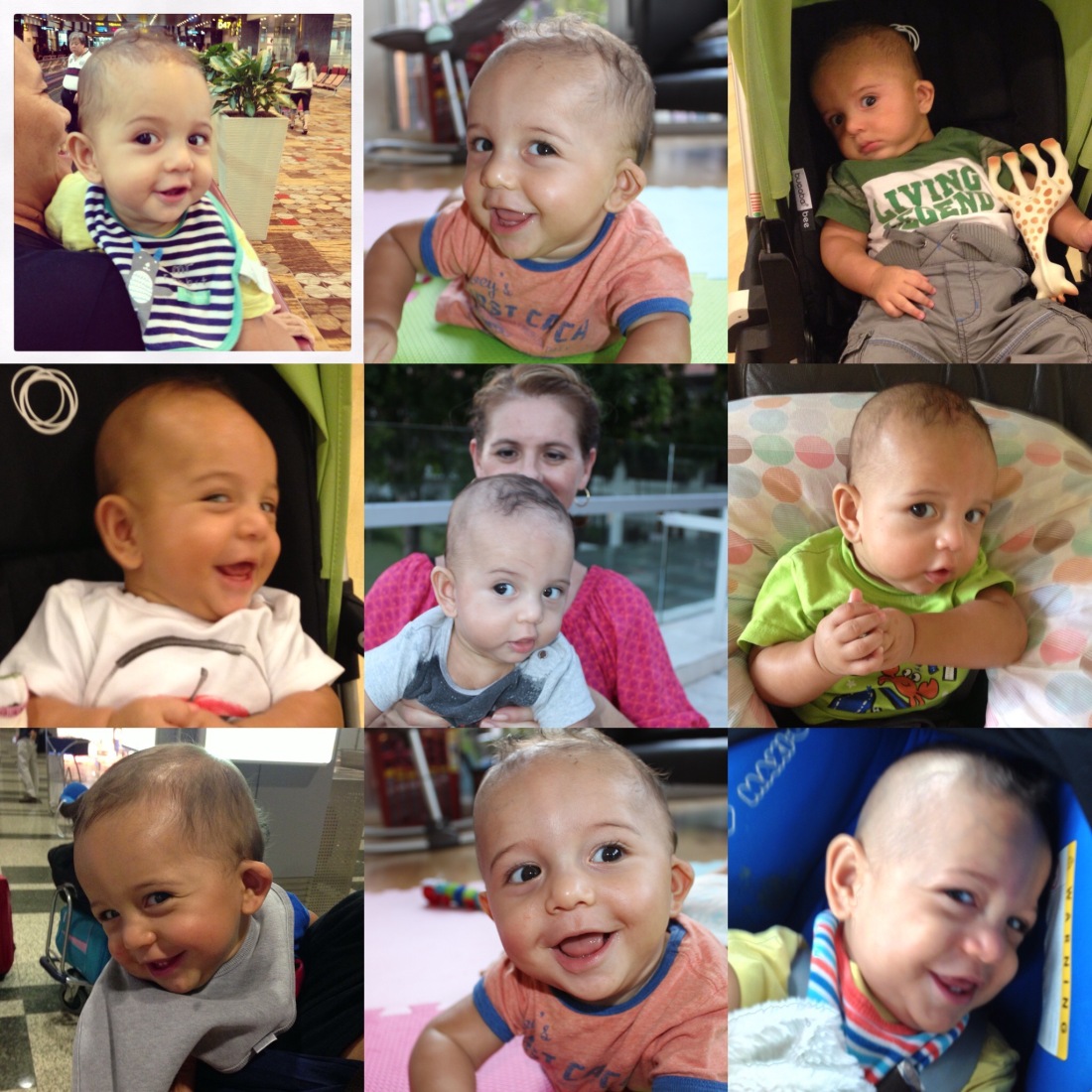
I thought I might start with the whole “being pregnant” thing but that’s not really where the questions started – these come a bit later. Having the fortune of an older sibling and understanding the “milestones” of an infant, I started to think there was an issue with Sol’s eyes when he seemed pained to make eye contact while breast feeding. For any mum of a neurotypical* child, you’ll know that your newborn will literally stare into your soul while you are feeding them. It’s all part of the bonding and “you’re gonna love me” manipulation of helpless, innocent babies. We fall for it hook, line and sinker and here the next 12 months of sleepless torture ensues. But I digress.
Sol would not/could not make eye contact. And it wasn’t just while I was feeding but when I held him up to my face to interact. His head would turn away and then turn the other way as if he was actually “avoiding” making contact. Strange….or is my baby BLIND???!!! You know those crazy thoughts that go through your head when you’re sleep deprived and obsessed with your little one. The thought that there might be a “problem” and off to the paediatrician you go armed with the internets “worst case scenarios”.
Sol would have been 3.5 months by the time I broached this with his doctor. She conducted a simple “eye tracking” test and confirmed that there might be a vision issue. Anxiety goes from an 8.5/10 to a 10/10. Armed with a recommendation to see the paediatric ophthalmologist (say that 10 times fast), we scheduled Sol’s first formal vision assessment.
The tests were relatively simple – tracking of objects, pupil dilation in light and dark and clapping to check speed of response from hearing to making eye contact. The diagnosis.
Delayed Visual Maturation (click on for medical description). OK, so sometimes, I’m going to add a link so you can look up the medical term for any of the words I’m going to write about to describe our journey and I’ll also give you my interpretation. DVM is the inability to track moving objects or focus on any object (includes faces) that are too close. That was my experience with Sol. The photos above all clearly show that he turns his head to focus on an object, face, or in this case, my iPhone that was constantly shoved into his face taking photos of his “best side”.
How do you correct DVM? Well, it’s dependent on the severity of the case but generally, through play that involves rolling balls past them while they are in tummy time or sitting up. We had some brightly coloured balls that we would roll across the floor and Sol would follow the ball but his head would move like he was a robot – not smooth. He also needed to physically turn his head to follow the ball and not just allow his eyes to track the ball. So, from that, I had a question about “peripheral vision”. Actually, I had a LOT of questions. And the other “ego-driven” questions like – how many other kids have this? Is my baby boy going to be like this forever? How will this affect him? When will he be normal again? So, HELLO Facebook Groups. Lifesavers! I joined a FB page for Delayed Visual Maturation and instantly gained insights, ideas and supportive and encouraging feedback from strangers all over the World.
An interesting discussion with the ophthalmologist indicated that we would be able to test Sol further to rule out “other future development issues”. Don’t you hate it when they say shit like that and you’ve gone from a 10/10 anxiety level to a 12/10? All of this while I’m trying to feed Sol and take on medical terminology in a sleep deprived brain fog. Did he say – “You might want to follow up with a brain scan” or “There might be some other factors you’ll want to rule out” or “DVM is not always an isolated event” or ALL.OF.THAT. WTF?
At this point I’m going to leave the “next steps” till another post and finish on a positive. So my Sol-Man has a diagnosis for DVM – we can work with that. As a physical educator and information nerd with a highly tuned gut instinct, I knew there were things other than “rolling balls” that I could do to help Sol. I have a pretty good grasp on how the brain functions and how the body develops. I could also see from Sol’s developing personality that he had a high energy, social nature and that I would be able to work that in his favour. He was feeding well, sleeping well and loved being taken out to different places. He was never easily afraid and seemed highly curious. ALL GOOD THINGS.
Word of the Day – NEUROTYPICAL. I had to really ponder on the meaning of this. Neuro – the brain and nervous system. Typical – expected behaviour. So in a nutshell, it’s when you meet all the benchmark milestones and respond to them physically, mentally, emotionally and socially according to what is deemed “normal”. As my 13 year old daughter Jazz says “It’s the way they teach us to pass tests so we can get high GPA scores and a better chance of getting into a prestigious expensive colleges so we can get the best jobs, be normal and life is perfect”. All said with lashings of 13-year old sarcasm and irony. Jazz is neurotypical. LOL
OTHER RESOURCES
Baby and Beyond (Paediatrician)
International Specialist Eye Centre
